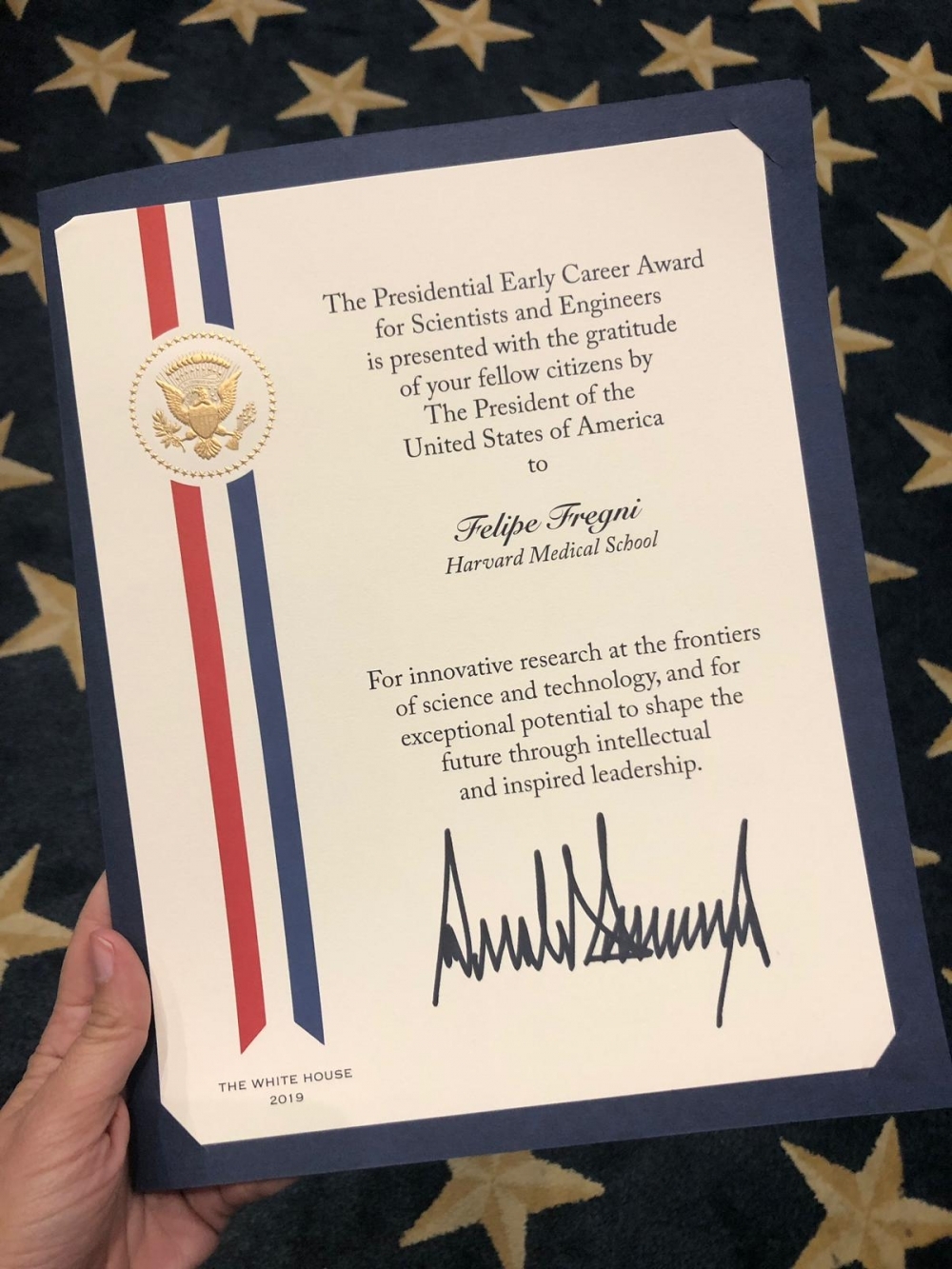

Professor at University of São Paulo and Harvard Medical School leads a project funded by FAPESP via its São Paulo Excellence Chair (SPEC) program to find neurophysiological biomarkers that will improve the rehabilitation of patients with motor disabilities (photo: Felipe Fregni)
Professor at University of São Paulo and Harvard Medical School leads a project funded by FAPESP via its São Paulo Excellence Chair (SPEC) program to find neurophysiological biomarkers that will improve the rehabilitation of patients with motor disabilities.
Professor at University of São Paulo and Harvard Medical School leads a project funded by FAPESP via its São Paulo Excellence Chair (SPEC) program to find neurophysiological biomarkers that will improve the rehabilitation of patients with motor disabilities.

Professor at University of São Paulo and Harvard Medical School leads a project funded by FAPESP via its São Paulo Excellence Chair (SPEC) program to find neurophysiological biomarkers that will improve the rehabilitation of patients with motor disabilities (photo: Felipe Fregni)
By André Julião | Agência FAPESP – Felipe Fregni, an Associate Professor of Physical Medicine and Rehabilitation (PM&R) at Harvard Medical School in the United States and also a Visiting Professor at the University of São Paulo’s Medical School (FM-USP) in Brazil, has won a Presidential Early Career Award for Scientists and Engineers (PECASE), the highest honor for young researchers bestowed by the US government.
Since 2018, Fregni has been the principal investigator for the project “Inhibitory deficit as a marker of neuroplasticity in rehabilitation”, funded by FAPESP under the aegis of its São Paulo Excellence Chair (SPEC) program and conducted in collaboration with researchers at FM-USP’s Department of Rehabilitation. A 44-year-old Brazilian-born researcher who has lived and worked in the US since 2003, Felipe Fregni runs the Spaulding Neuromodulation Center in Boston, Massachusets.
Fregni was honored, along with other award winners, at a recognition ceremony held on July 25 at DAR Constitution Hall in Washington, DC. The PECASE awards have been given since 1996 to outstanding scientists and engineers who are beginning their independent research careers and show exceptional promise for leadership in science and technology. The last edition was in 2016.
In a interview with Agência FAPESP, Fregni talked about his research project, which focuses on the use of noninvasive brain stimulation techniques, including transcranial magnetic stimulation, functional near-infrared spectroscopy and high-density electroencephalography, to understand the neuroplasticity mechanisms involved in motor rehabilitation for some 500 patients with stroke, spinal cord injury, amputation and osteoarthritis.
Fregni explained that he and the team at FM-USP are looking for neurophysiological biomarkers to help refine rehabilitation in both scientific and therapeutic terms. “We want to understand how inhibitory networks relate to clinical outcomes and use this knowledge to develop new therapies,” he said.
“Humans have about 80 billion neurons. When we speak, for example, we need to inhibit most of our neurons and activate a much smaller neural network that moves the muscles in our mouth and tongue, among others. Patients in comas suffer from brain disorganization in the sense that everything is functioning at the same time in a disorderly manner. Inhibitory networks are important to the brain’s organization. Our hypothesis is that they play a vital role in rehabilitation.”
Fregni sees the project as an important outcome of the intense collaboration he has maintained with Brazil since he moved to the US. “This factor was also undoubtedly of vital importance to my receiving the PECASE award, so in a sense I share the honor with my Brazilian partners,” he said.
In addition to FM-USP, where he graduated in medicine and earned a PhD in psychiatry, Fregni collaborates with the Federal University of Rio Grande do Sul (UFRGS) in Brazil and has had several projects selected for funding by FAPESP (read more at agencia.fapesp.br/22939).
The PECASE awards are conferred annually by the White House Office of Science and Technology Policy, which coordinates the scheme with nominating departments and agencies, such as the National Institutes of Health (NIH), the National Science Foundation (NSF), NASA, and the Departments of Education, Energy, Defense and Agriculture. Fregni was nominated by the US Department of Health and Human Services.
Fregni said he was told about the nomination two years ago and surprised to see his name among the winners in the official announcement, issued on July 2.
More about the PECASE Awards and the complete list of recipients can be found at www.nsf.gov/awards/pecase.jsp.
Republish
The Agency FAPESP licenses news via Creative Commons (CC-BY-NC-ND) so that they can be republished free of charge and in a simple way by other digital or printed vehicles. Agência FAPESP must be credited as the source of the content being republished and the name of the reporter (if any) must be attributed. Using the HMTL button below allows compliance with these rules, detailed in Digital Republishing Policy FAPESP.





